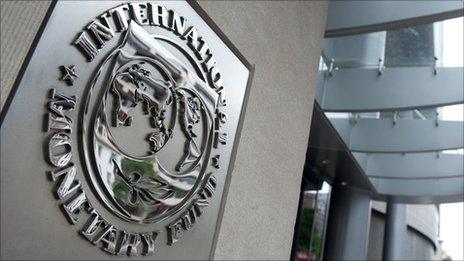Profile: Agustin Carstens
- Published
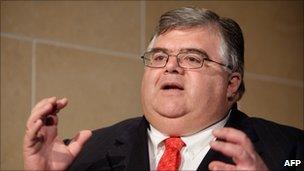
Mr Carstens says he would bring a fresh pair of eyes to the IMF
The two candidates competing to be the next managing director of the International Monetary Fund (IMF) could not be more different in their appearance.
Tall, poised and elegant, French Finance Minister Christine Lagarde has been described as having a rock-star appeal on the international political circuit.
By contrast, Mexico's central bank governor Agustin Carstens, is known for his rotund figure, which is often portrayed in Mexican political cartoons.
But Mr Carstens, 53, is by no means a joke candidate in the race to lead the IMF.
Academic qualifications
His economic credentials cannot be doubted.
He graduated with an economics degree from the Autonomous Technological Institute of Mexico, before collecting both a master's and PhD in economics from the University of Chicago, where deregulation and "laissez-faire" economics were the dominant views.
It was there that Mr Carstens, a former Little League baseball star, became a fan of the Chicago Cubs team.
It was also in Chicago that Mr Carstens met his wife, economist and author Catherine Mansell, who writes under the pen name CM Mayo.
After obtaining his doctorate in 1985, Mr Carstens returned to Mexico where he joined the central bank and rose through the ranks, his roles including chief of staff in the governor's office and director general of economic research.
While at the bank, he gained first-hand experience of dealing with financial crises, including Mexico's debt problems in the 1980s and the peso's crash in 1994 - experience which his supporters say make him the ideal candidate for the IMF.
'Superb ambassador'
He left the bank in 1999 to work as an executive director at the IMF, but returned to Mexico in 2000, serving as deputy finance minister under President Vicente Fox, marking his first ties with the conservative National Action Party.
In 2003, he rejoined the IMF as deputy managing director, where he was held in high regard.
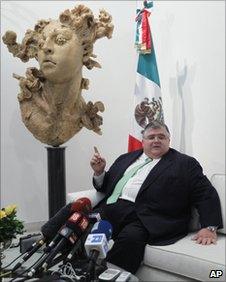
Agustin Carstens has been lobbying for international support for his bid
When he left the role in 2006, again to return to front-line Mexican politics, Rodrigo de Rato, the IMF President at the time, described him as "a superb ambassador for the fund, who carried high credibility with policymakers".
Serving as finance minister for three years under President Felipe Calderon, Mr Carstens was responsible for pushing through new taxes to bolster Mexico's revenues.
'Sniffles'
But his biggest gaffe came in early 2009 when a reporter asked him if the economic troubles in the US would affect Mexico.
The reporter reminded him of the saying that when the US catches a cold, Mexico usually catches pneumonia.
Mexico's economy was in good health at the time and Mr Carstens replied the country would only get "the sniffles".
In fact, Mexico's economic output fell by 6.5% that year.
Nevertheless, sniffles aside, President Calderon nominated Mr Carstens to be the next head of the Bank of Mexico, a post he has held for the past year and a half.
But his pledge to work closely with the government raised questions about the bank's independence.
"Being autonomous on monetary policy does not mean you have to be isolated from the national economic debate," he said at his confirmation hearing.
Latin American support
Mr Carstens himself acknowledges Ms Lagarde is the favourite to replace Dominique Strauss-Kahn at the IMF.
"I'm not fooling myself. It's like starting a soccer game with a 5-0 score," he said on Monday.
He says he would bring "a fresh pair of eyes" to the role.
A European, he says, could face a conflict of interest, given the continuing debt crisis in some eurozone countries, while he can appreciate what emerging markets can contribute to the IMF.
But the fact he is from the Americas could work against him.
Robert Zoellick, from the US, currently heads the World Bank and some countries may not be keen to see the two global institutions led by officials from the same part of the world.
Traditionally, an American has headed the World Bank while a European has been in charge of the IMF.
And while Mr Carstens has the support of most of Latin America, Brazil - the region's largest economy - has yet to say whom it will back.
For Mr Carstens to be successful, he would almost certainly need Brazil to back him.
- Published14 June 2011
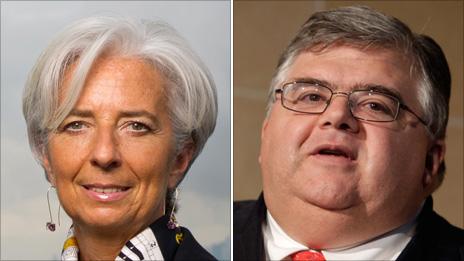
- Published19 December 2016
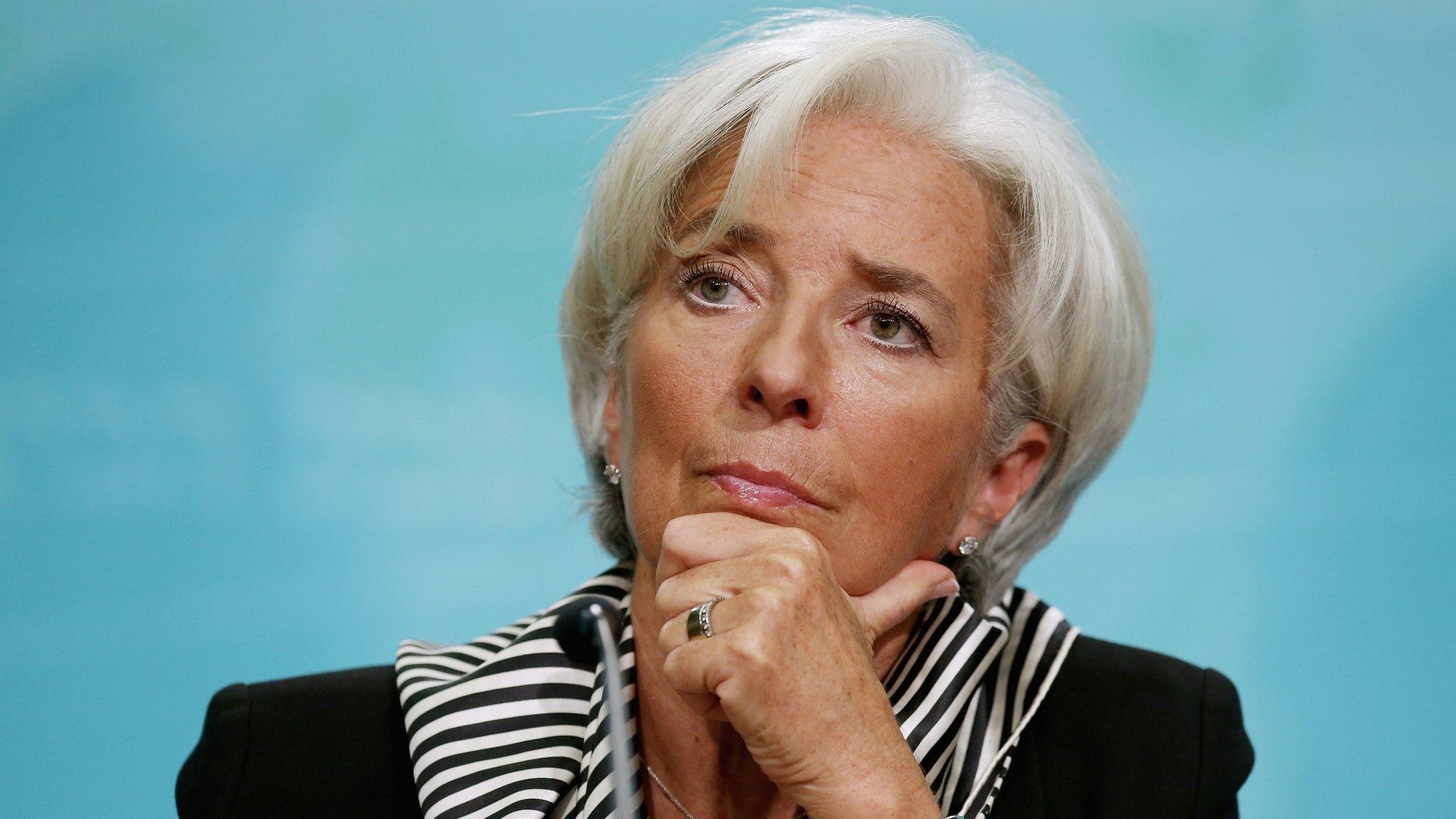
- Published10 June 2011
